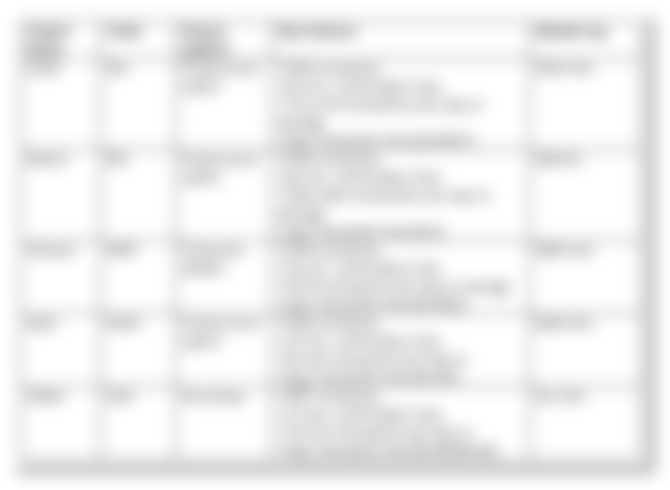Introduction
Zcash’s genesis block was mined in October 2016, since then the cryptocurrency has aimed to provide enhanced privacy and security to its users. Zcash uses advanced cryptography, so-called zk-SNARKS or Zero-knowledge proofs, to shield transactions. It enables one party to prove to another that something is true, without revealing any information, apart from the fact that this specific statement is true.
Zcash was able to capitalize on the privacy issues of Bitcoin and forked its codebase. There are two types of transactions on its blockchain: shielded (using zk-SNARKS) and unshielded (just like on the original Bitcoin blockchain), making privacy an option for its users.
Due to optional privacy, Zcash faces stiff competition from both types of payment coins: private and non-private. In fact, only 12% of the total Zcash transactions are private.
Still, in the privacy coin sector, there are players like Monero which have privacy by default and have greater adoption levels amongst its users.
So while Zcash is considered a privacy coin it needs to find its niche in that sector. Otherwise, with no apparent use cases, it will lose out to either a more advanced and private altcoin rival or to Bitcoin, which has a larger user base.
As a payment solution Zcash has the opportunity to disrupt several markets. It has the potential to become a form of payment in the retails industry. Only in the U.S., retail sales reached $5.7 trillion in 2017, while global retail sales are expected to grow over $27 trillion by 2020. Increasing adoption in this market represents a substantial opportunity for growth.
Furthermore, while more than half of world adult population has access to banking, 1.7 billion people still remain unbanked (without an account at a financial institution or through a mobile money provider), according to Global Findex Database. Blockchain payment solutions may offer all types of banking services, such as payments, loans, money transfers, etc. These individuals represent a large market outside of the traditional banking system that is ready to adopt blockchain payment solutions.
Also, with its privacy features Zcash can capture the offshore wealth market. The extremely wealthy have accumulated at least $21 trillion in secretive offshore accounts. If even 1% of it will be held in Zcash it will drive the price of the coin up to new heights.
The payments market has been one of the most promising areas for the blockchain industry. Cryptocurrencies have the opportunity to eliminate multiple “middlemen fees” and make transactions cheaper. Therefore there have been multiple coins that have been trying to compete and become a means of payment for the crypto adopters.
Zcash compares itself to different payments solutions, such as credit cards, Bitcoin and cash.
The space is competitive and the company is facing stiff competition across all of the sectors. Below is a table representing some of the key blockchain-based rivals.
Competition in the Blockchain Space

Currently, Zcash is losing to competitors in both private and non-private sectors of the crypto market.
In the private coin sector, its main competitor is Monero. The coin is private by default and is considered to be the first choice for those who want to hide transactions from the general public. If you are using Zcash private transactions your actions may be considered suspect, just for doing that. When someone is using shielded transactions while everyone else is using transparent ones, questions are bound to arise, as only 12% of the transactions are shielded on the Zcash blockchain.
Moreover, when coins move from “unshielded” to “shielded” and back to “unshielded” addresses they may lose some of the anonymity they had. This partially explains why Zcash has a low percentage of private transactions on its blockchain.
The market for privacy coins is competitive, and rivalry can even go beyond “doing a better product.” The Chairman of Zcash Foundation, for example, was working on the research paper that studied linkability of Monero transactions.
The paper was published an hour before the scheduled Monero hard fork and was considered as “paid for hit piece” by the community since the largest vulnerability in the paper was noted over two years before, was mitigated over a year before, and was nearly completely resolved before the first version of the paper was published.
In the non-private sector, companies like Stellar have been able to move much further in terms of technology and ecosystem development, and with 3 to 5 seconds confirmation time are much more suitable for payments.
Dash is another coin that provides privacy as an option. Although there are many questions regarding the level of privacy it provides, Dash is probably the most popular cryptocurrency in Venezuela and it keeps building relationships and infrastructure in different countries which increases adoption and helps gain market share.
NVT comparison reveals a similar story. Zcash transactions are priced much lower comparing to Dash and Stellar. This is reasonable since investors, for the most part, are using Zcash as non-private coin, which makes it identical to bitcoin, but with a much lower network effect.
Zcash is also likely to face competition from companies that are not currently building blockchain but are already providing payment services in the traditional markets. These companies have high network effects, and if they enter the blockchain market, they can quickly become dominant players.
Western Union, for example, is already evaluating Cryptocurrencies and is ready to add them to their platform. MarketCap has filed a patent that hints at multi-currency blockchain.
If these companies adopt some of the technologies that the current blockchain payment systems have, they could become dominant players in the market.
The Team behind the Zcash project
Zooko Wilcox – Zooko is the CEO of Zcash Company. He has more than 20 years of experience in secure distributed systems, free and open source software, and startups. He is known for his work on DigiCash, Mojo Nation, ZRTP, “Zooko’s Triangle”, and more.
Andrew Miller – Andrew is the president of Zcash Foundation Board of Directors. He is also Assistant Professor in the Electrical and Computer Engineering department at the University of Illinois at Urbana-Champaign, and an associate director of the Initiative for Cryptocurrencies and Contracts.

Zcash Company has established a well-rounded team with over 30 people from various backgrounds, including web developers, marketing professionals, scientists, legal personnel, business developers, and more.
Zcash Underlying Technology
Zcash is a code fork of the bitcoin protocol and utilizes the Equihash proof-of-work consensus algorithm. Equihash was originally chosen due to its very efficient verification features, which are necessary for certain functional development such as that of light client’s implementation, Z-cash client on Ethereum, and more.
Zcash also enables privacy preserving transactions using zero-knowledge proofs (zk-SNARKS).
The acronym zk-SNARK stands for “Zero-Knowledge Succinct Non-Interactive Argument of Knowledge,” and refers to a proof construction where one can prove possession of certain information, without revealing that information, and without any interaction between the prover and verifier.
However, due to its cryptographic limitations, these parameters must be generated in a setup phase. The obvious way to construct SNARK public parameters is just to have someone generate a public/private key pair, and then destroy the private key. If the keys are not destroyed, they can be used to issue an unlimited amount of ZEC tokens, and inflate the total supply.
In order to mitigate this risk, the company devised a multiparty computation ceremony in which multiple users each generate a «shard» of the public/private key pair, then destroy their shard of the private key, and then bring together their shards of the public key to form the SNARK public parameters.
To this date, Zcash has been through two multiparty computation ceremonies in October 2016 just before the launch, and in October 2018 in anticipation of the Sapling network upgrade.
The requirement for such a trusted setup is generally considered a weakness for a cryptocurrency since it does not rely on cryptography or math and relies on general trust that founders do not compromise the setup.
Assuming the ceremony was not compromised, there are four basic types of Zcash transactions: private, deshielding, shielding, and public.

There are private Z-addresses and transparent T-addresses.
A Z-to-Z transaction appears on the public blockchain, but the addresses, transaction amount and the memo field are not publicly available.
T-to-T transactions are public like in the original Bitcoin.
Z-to-T and T-to-Z transactions are not entirely private and in some cases can be linked to each other, revealing sensitive information.
Currently, the number of shielded transactions on Zcash blockchain is only about 12%.

If we look even deeper, the number of Z-to-Z transactions is equal to about 0.4% out of all transactions ever made, which is quite low for a coin that is considered to be private.

The problem with low adoption of shielded transactions was supposed to be solved by the Sapling update, which introduced significant efficiency improvements for shielded transactions: a time reduction of 90% for constructing transactions, and a memory reduction of over 97%.
Before Sapling, confidential transactions were relatively heavy and inconvenient to use. They required over 3GB of memory to perform and over 40 seconds to complete. This was reduced to 40 MB of memory and to a few seconds to complete.
Sapling should allow broad mobile, exchange and vendor adoption of shielded transactions, and is a clear breakthrough for the company. Furthermore, from the conversation with the team, it appears that there is a significant interest from wallets and exchanges to implement shielded addresses.
On the other side, updating to Sapling reveals users’ funds. This was done intentionally by the developers, in order to prove that the first multiparty computation ceremony was not compromised. This a big concern, giving the fact that Zcash is a privacy coin. In the future, centralized decisions makers may be influenced by the government, which potentially can repeat the situation. Such precedent can scare away users who seek privacy.
This could partially explain why, since the release in October 2018, there has been no significant increase in shielded transaction activity. The number of shielded transactions stays relatively low, which indicates little interest in privacy among Zcash users.
The Roadmap of Zcash
Zcash has a publicly available roadmap for 2019, with several key goals including facilitating the adoption of shielded transactions and implementation of the next protocol upgrade.
The protocol upgrade is planned to be activated in October 2019, and should include several important features:
Harmony Mining – dual-proof-of-work scheme, which will be compatible with current mining equipment, and also with GPUs on a temporary time scale.
Split Founders’ Reward – alter the consensus rules so that there are distinct addresses for the Zcash Foundation, Zcash Company Strategic Reserve, and the remainder.
Transaction Confirmation Usability and Security Improvements – improve usability and security of fees and confirmations while accounting for growing transaction volume and demand.
Light Client Protocol Dovetailing – Alter the base consensus protocol to reinforce light client support.
BOLT Support – Base consensus support for the BOLT second-layer protocol.
Custodian Reinforcement – This includes a variety of potential features that can potentially protect typical end-users as well as specialized custodians.
Giving its past performance, Zcash will be able to complete its technological upgrades in the upcoming year. However, one of the most important questions that the company should focus on is increasing adoption. The roadmap is not clear on this side. The complementary effect of improving technology may not be sufficient in order to push for further adoption of the cryptocurrency.
Conclusion
There are many notable professors that drive advanced research on ZK-snarks. It should be noted that this technology is highly complex for understanding, and there are few people in the world who understand the math behind it. The research team is a valuable asset for the company and it will drive further research on ZK-snarks for the industry.
The company is also supported by well-known advisors, such as Vitalik Buterin (Ethereum Founder), Gavin Andresen (Bitcoin Foundation founder), Arthur Brietman (Tezos Founder), etc. Having such advisors, can open many doors for the Company in terms of different partnerships and business development.
However, the team does not see having a centralized company in charge of a private cryptocurrency as an ideal strategy for long-term development. Therefore, in 2017, the Company decided to establish the Zcash Foundation, which is supposed to be entirely independent of the Zcash Company. A portion of the Founders Reward will be distributed to the Zcash Foundation until November 2021.
Currently, the roadmap progress is still driven by Zcash Company, and this will continue for at least a few years. If Zcash Foundation will ever mature and become truly independent of Zcash Company we may see a migration towards more decentralized decision making. However, these processes are still unclear for the Company and for the community.
Zcash has a strong team behind the project and it will remain so for at least a few years before the company will have to switch to a different funding scheme, and possibly transform its governance. ZEC token is highly correlated with the market which still has a long road to the overall adoption phase. it has a huge potential to stay in the long run in cryptocurrency market and business in general. What do you think of this? Let me know in the comments section below.
Thanks for reading!




